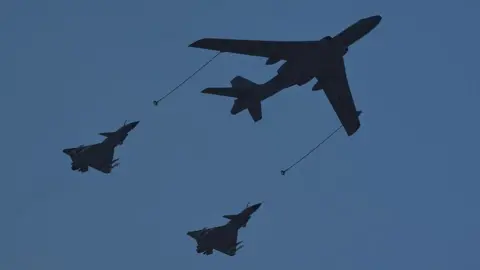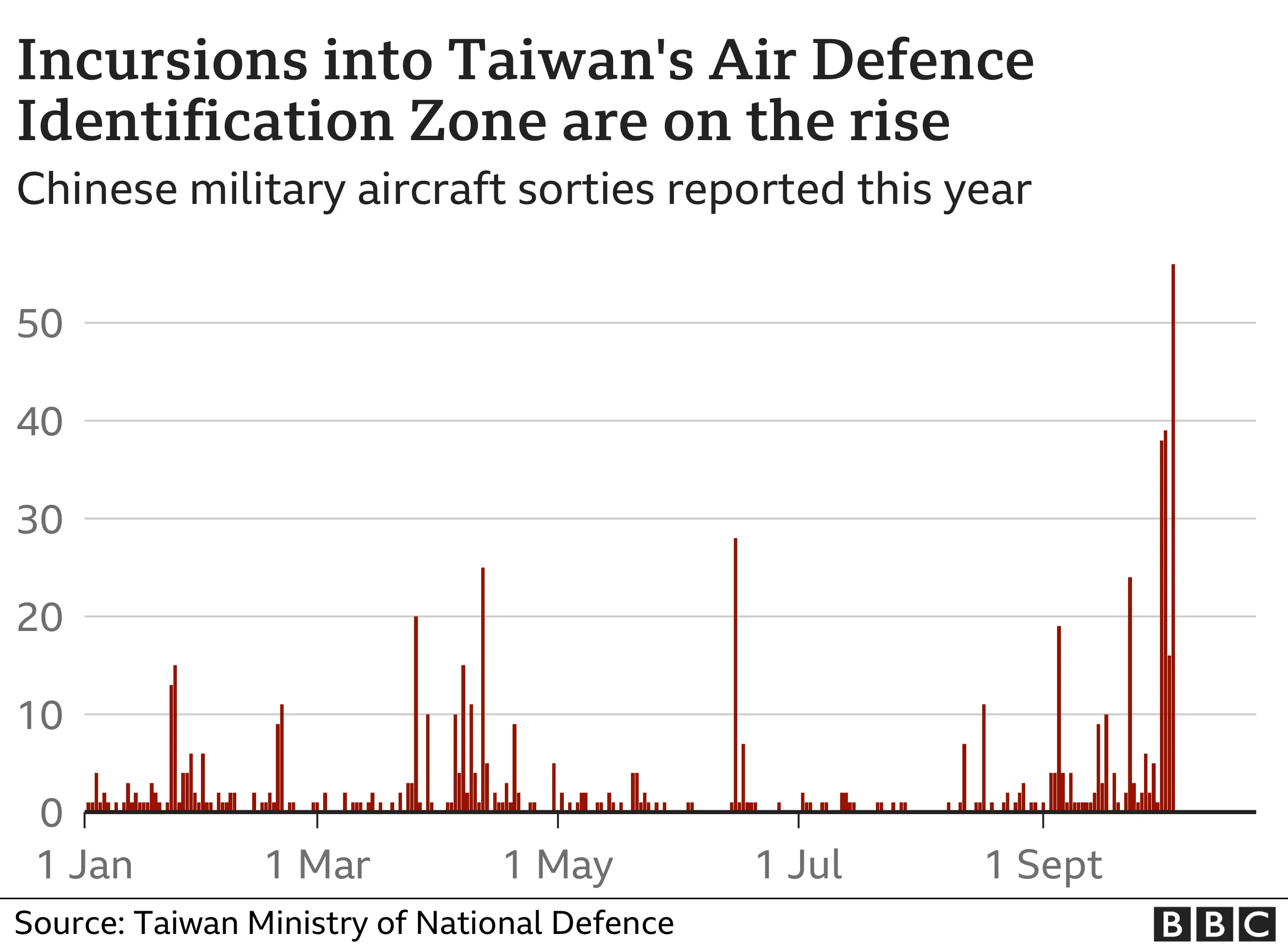Record number of China planes enter Taiwan air defence zone
 Getty Images
Getty ImagesTaiwan has urged Beijing to stop "irresponsible provocative actions" after a record number of Chinese warplanes entered its air defence zone.
Monday's incursion marks the fourth straight day of incursions by Chinese aircraft, with almost 150 aircraft sent into Taiwan's defence zone in total.
Some analysts say the flights could be seen as a warning to Taiwan's president ahead of the island's national day.
Beijing views Taiwan as a breakaway province.
However, democratic Taiwan sees itself as a sovereign state.
In an essay for Foreign Affairs magazine on Tuesday, Taiwan's President Tsai Ing-wen warned there would be "catastrophic" consequences for peace and democracy in Asia if the island were to fall to China.
"It would signal that in today's global contest of values, authoritarianism has the upper hand over democracy," she wrote.
Ms Tsai added that while Taiwan did not seek confrontation, Taiwan would "do whatever it takes to defend itself".
Taiwan has been reporting for more than a year that China's air force has been repeatedly flying nearby.


The latest Chinese mission included 34 J-16 fighters and 12 nuclear-capable H-6 bombers, which all flew in an area near the Taiwan-controlled Pratas Islands, according to a map provided by the Taiwanese government.
Four more Chinese fighters were spotted late on Monday, taking the total to 56 aircraft in one day.
Taiwan's top China policy-making body, the Mainland Affairs Council (MAC), accused Beijing of "seriously damaging the status quo of peace and stability in the Taiwan Strait".
"We demand the Beijing authorities immediately stop its non-peaceful and irresponsible provocative actions," MAC spokesman Chiu Chui-cheng said in a statement.
"China is the culprit for causing tensions between the two sides of the (Taiwan) Strait and it has further threatened regional security and order," he added, saying Taiwan "will never compromise and yield" to threats.
In response, China accused Washington of being the provocateurs, while warning against supporting Taiwanese independence.
"Engaging in Taiwan independence is a dead end. China will take all steps needed and firmly smash any Taiwan independence plots," the ministry said.
The US should stop supporting and "inflating" Taiwan separatist forces, it added.
Analysts have previously warned that Beijing is becoming increasingly concerned that Taiwan's government is moving the island towards a formal declaration of independence and wanted to warn President Tsai against taking steps in that direction.
Ms Tsai, however, has repeatedly said that Taiwan is already an independent state, making any formal declaration unnecessary.
The island has its own constitution, military, and democratically elected leaders.
China has not ruled out the possible use of force to achieve unification with Taiwan.

China and Taiwan: The basics
- Why do China and Taiwan have poor relations? China and Taiwan were divided during a civil war in the 1940s, but Beijing insists the island will be reclaimed at some point, by force if necessary
- How is Taiwan governed? The island has its own constitution, democratically elected leaders, and about 300,000 active troops in its armed forces
- Who recognises Taiwan? Only a few countries recognise Taiwan. Most recognise the Chinese government in Beijing instead. The US has no official ties with Taiwan but does have a law which requires it to provide the island with the means to defend itself

